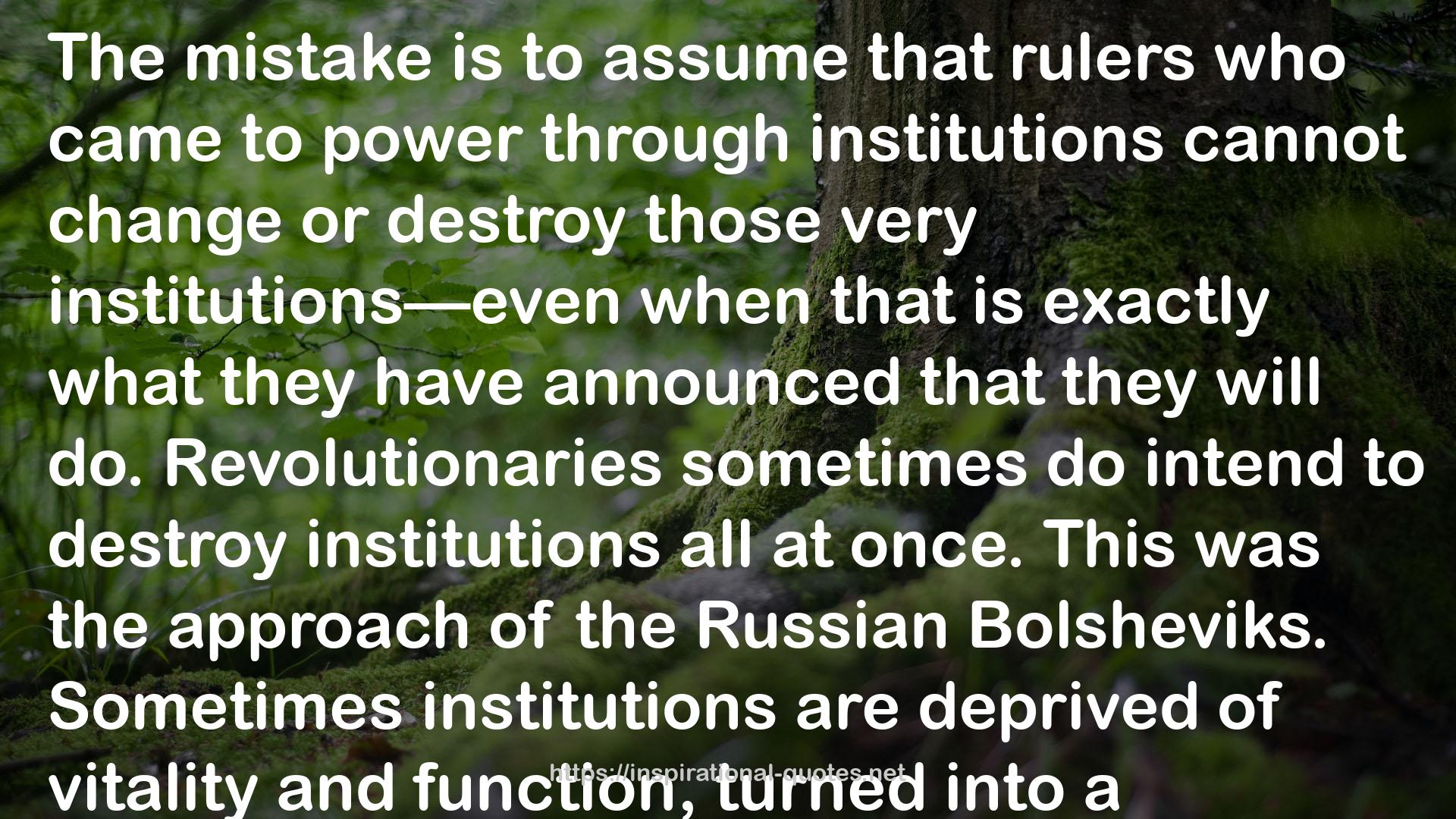" The mistake is to assume that rulers who came to power through institutions cannot change or destroy those very institutions—even when that is exactly what they have announced that they will do. Revolutionaries sometimes do intend to destroy institutions all at once. This was the approach of the Russian Bolsheviks. Sometimes institutions are deprived of vitality and function, turned into a simulacrum of what they once were, so that they gird the new order rather than resisting it. This is what the Nazis called Gleichschaltung. It took less than a year for the new Nazi order to consolidate. By the end of 1933, Germany had become a one-party state in which all major institutions had been humbled. That November, German authorities held parliamentary elections (without opposition) and a referendum (on an issue where the “correct” answer was known) to confirm the new order. Some German Jews voted as the Nazi leaders wanted them to in the hope that this gesture of loyalty would bind the new system to them. That was a vain hope. "
― Timothy Snyder , On Tyranny: Twenty Lessons from the Twentieth Century
